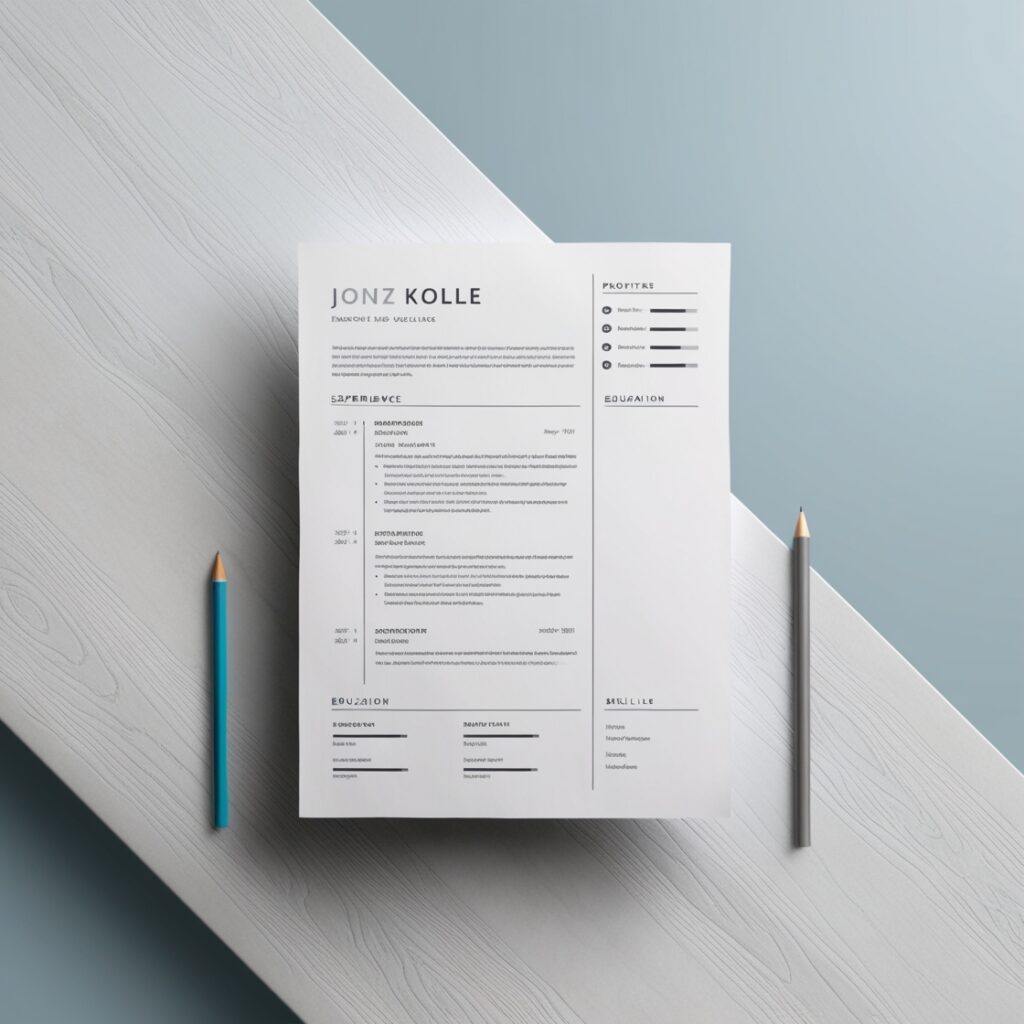
Table of Contents
- Introduction: The Transformative Power of Freelance Work
- Why Freelance Work is a Game-Changer for Your Resume
- Emotional Impact: Building Confidence Through Freelancing
- Freelance Work as a Reflection of Key Professional Traits
- Practical Guide: How to Add Freelance Work to Your Resume
- Choose the Right Format
- Highlight Your Key Achievements
- Quantify Your Success
- Tailor Your Freelance Experience to the Job
- Crafting a Winning Resume: A Step-by-Step Guide
- Start with a Strong Summary
- Organize Your Work Experience
- Include Relevant Skills and Certifications
- Proofread and Optimize for ATS
- Tips for Highlighting Soft Skills Gained Through Freelancing
- Mindset Tips for Creating a Standout Resume
- Real-Life Benefits of a Strong Resume
- How to Address Common Freelance Resume Challenges
- Building a Portfolio to Complement Your Resume
- Leveraging Freelance Work in Job Interviews
- Conclusion: Embrace Freelancing to Empower Your Career
- Suggested External Links
- FAQs
Introduction: The Transformative Power of Freelance Work
In today’s dynamic job market, your resume is much more than a record of employment history; it’s a narrative that tells potential employers who you are, what you’ve accomplished, and what you can bring to their organization. But what if your resume could be more than just a reflection of past roles? What if it could tell a story of innovation, resilience, and the courage to carve out your own path? This is where adding freelance work to your resume comes into play.
Freelancing isn’t just about filling in gaps between jobs or making some extra cash on the side. It’s about stepping into a role where you are both the employee and the employer, where you learn to manage projects, clients, and deadlines with minimal supervision. Including freelance work on your resume can be a transformative move, not only enhancing your career prospects but also boosting your confidence in your professional abilities. This detailed guide will walk you through how to effectively add freelance work to your resume and illustrate how doing so can change everything for your career.
Why Freelance Work is a Game-Changer for Your Resume
Freelancing can revolutionize your resume by showcasing your ability to manage various aspects of a business, often simultaneously. Unlike traditional roles, where responsibilities are typically confined to a specific job description, freelancing requires you to wear many hats. You’re responsible for finding clients, negotiating contracts, delivering high-quality work, and even managing your finances. These experiences develop a wide range of skills that are highly sought after in today’s job market.
For instance, suppose you worked as a freelance graphic designer. Not only did you create visually appealing designs, but you also communicated with clients, understood their needs, managed project timelines, and delivered work that exceeded expectations. This demonstrates your ability to handle multiple responsibilities—skills that are invaluable to any employer.
Moreover, freelancing shows that you’re self-motivated and proactive. You don’t wait for opportunities to come to you; you seek them out. This is a trait that employers love because it indicates that you’ll bring the same level of initiative and drive to their organization.
Emotional Impact: Building Confidence Through Freelancing
One of the most profound effects of freelancing is the confidence it builds. Every project you complete is a testament to your skills and determination. Whether you’re navigating the challenges of finding clients, managing deadlines, or learning new skills on the fly, each experience strengthens your belief in your capabilities.
This confidence doesn’t just stay within the realm of freelancing—it spills over into all areas of your career. When you know you can handle the uncertainties and demands of freelancing, you approach job interviews, new projects, and even career shifts with a sense of empowerment. You’ve proven to yourself that you can succeed on your own terms, and that belief is incredibly powerful.
For example, consider Sarah, who started freelancing as a content writer after being laid off from her corporate job. Initially, she was riddled with self-doubt, unsure if she could make it on her own. But as she landed clients, met tight deadlines, and saw her work published on well-known platforms, her confidence soared. When she eventually decided to return to the traditional job market, she found that she was no longer anxious in interviews. Instead, she walked in with the assurance that she could deliver value, no matter the environment. Sarah’s freelance experience became the cornerstone of her resume and the key to landing a senior content strategist position.
Freelance Work as a Reflection of Key Professional Traits
Freelance work is not just a filler on your resume; it’s a reflection of several key professional traits that employers find attractive. Here’s how freelancing can highlight some of these traits:
- Versatility: Freelancers often juggle multiple projects across different industries. This versatility is a clear indication of your ability to adapt to various challenges and environments.
- Problem-Solving: In freelancing, you’re often left to solve problems on your own, whether it’s figuring out how to meet a tight deadline or learning a new skill to satisfy a client’s needs. This showcases your ability to think critically and creatively.
- Communication: Freelancers need to communicate effectively with clients to understand their needs and deliver results that meet or exceed expectations. This skill is crucial in any job but is especially highlighted in freelancing roles.
- Time Management: Without the structure of a traditional job, freelancers must be disciplined in managing their time. This trait is highly valued by employers who are looking for candidates who can be productive with minimal supervision.
By emphasizing these traits, freelance work can elevate your resume, making it clear to employers that you possess the qualities necessary to succeed in any role.
Practical Guide: How to Add Freelance Work to Your Resume
Choose the Right Format
The first step in adding freelance work to your resume is selecting the right format. You have a few options:
- Integrated Format: If your freelance work is closely related to the job you’re applying for, consider integrating it into your traditional work experience. List it alongside your other positions, ensuring it’s given the same level of detail and prominence.
- Freelance Section: If you’ve done a significant amount of freelance work, you might want to create a separate section titled “Freelance Experience” or “Independent Projects.” This allows you to showcase your freelance work as a cohesive part of your career narrative.
- Portfolio Link: For those in creative fields, including a link to an online portfolio where employers can see your freelance work can be very effective. This is especially useful if your work is visual or project-based.
Highlight Your Key Achievements
When detailing your freelance work, focus on the outcomes you achieved. Did you help a client increase their sales? Did your designs lead to a rebranding success? Be specific and use action verbs to describe your contributions. For example:
- “Developed a comprehensive social media strategy for a small business, resulting in a 30% increase in online engagement over six months.”
- “Designed a new logo and brand identity for a startup, leading to a successful product launch and a 15% increase in market share.”
Quantify Your Success
Numbers speak volumes. Wherever possible, include metrics that demonstrate the impact of your freelance work. This could be anything from revenue growth, increases in website traffic, to the number of projects completed on time. Quantifying your achievements not only makes your resume more compelling but also provides concrete evidence of your capabilities.
Tailor Your Freelance Experience to the Job
Just as you would with traditional roles, tailor your freelance experience to the job you’re applying for. Highlight the projects and skills that are most relevant to the position. For example, if you’re applying for a marketing role, focus on your freelance projects that involved content creation, SEO, or social media management. Tailoring your resume ensures that your freelance work aligns with the needs of the employer.
Crafting a Winning Resume: A Step-by-Step Guide
Creating a standout resume requires careful planning and attention to detail. Here’s a step-by-step guide to help you craft a resume that not only highlights your freelance experience but also presents it in the best possible light.
Step 1: Start with a Strong Summary
Your resume should begin with a powerful summary that captures the essence of who you are as a professional. This is your elevator pitch—a brief paragraph that outlines your experience, skills, and what you bring to the table. If you’ve been freelancing, this is the place to mention it.
Example: “Versatile digital marketer with over seven years of experience, including three years of freelancing in social media management and content creation. Proven track record of driving engagement and increasing brand visibility through strategic online campaigns.”
Step 2: Organize Your Work Experience
Your work experience should be listed in reverse chronological order, starting with your most recent role. If your freelance work has been ongoing, consider grouping it under a single heading, such as “Freelance Graphic Designer,” with bullet points detailing your projects and achievements.
For example: Freelance Graphic Designer | January 2018 – Present
- Designed and implemented branding materials for a variety of clients, including logos, business cards, and websites.
- Collaborated with a startup to create a complete visual identity package, resulting in a 20% increase in brand recognition within the first six months of launch.
Listing your freelance work this way allows potential employers to see the breadth and depth of your experience, as well as the continuity of your work.
Step 3: Include Relevant Skills and Certifications
Freelancing often requires a diverse set of skills, many of which are highly transferable to other roles. In this section, highlight the skills that are most relevant to the job you’re applying for. This might include technical skills like proficiency in Adobe Creative Suite or coding languages, as well as soft skills like client communication, time management, and problem-solving.
Don’t forget to include any certifications or courses you’ve completed that add value to your freelance work. For instance, if you’ve taken a course on digital marketing or project management, list it here. Certifications are a great way to validate your skills and show employers that you’re committed to continuous learning.
Step 4: Proofread and Optimize for ATS
Before you submit your resume, it’s crucial to proofread it thoroughly. Typos and grammatical errors can make a negative impression on employers, so take the time to ensure your resume is polished and professional.
In addition to proofreading, you should also optimize your resume for Applicant Tracking Systems (ATS). These are the systems many companies use to scan resumes for specific keywords before a human ever sees them. To increase the chances of your resume making it through the ATS, include keywords from the job description and make sure your formatting is clean and easy to read.
Tips for Highlighting Soft Skills Gained Through Freelancing
Soft skills are just as important as technical skills, and freelancing is a great way to develop them. Here are some tips on how to highlight these skills on your resume:
- Communication: Freelancing requires you to communicate effectively with clients, often across different time zones and cultures. Highlight your ability to clearly convey ideas, manage client expectations, and collaborate remotely.
- Time Management: As a freelancer, you’re responsible for managing your own schedule and meeting deadlines without the structure of a traditional office. Emphasize your ability to prioritize tasks, work independently, and deliver results on time.
- Adaptability: Freelancers often have to adapt to different clients’ needs and work with a variety of tools and technologies. Showcase your ability to quickly learn new skills and adjust to changing project requirements.
- Problem-Solving: Freelancers are often left to solve problems on their own, whether it’s figuring out how to meet a tight deadline or learning a new skill to satisfy a client’s needs. This showcases your ability to think critically and creatively.
Mindset Tips for Creating a Standout Resume
Creating a resume that stands out requires the right mindset. Here are some mindset tips to keep in mind as you craft your resume:
- Think of Your Resume as a Marketing Tool: Your resume is not just a document; it’s a marketing tool that should sell you as the best candidate for the job. Approach it with the same attention to detail and focus on results that you would bring to a freelance project.
- Focus on Value, Not Just Experience: Don’t just list your previous jobs or freelance gigs—focus on the value you brought to each role. What did you achieve? How did you help your clients succeed? By focusing on the value you provided, you’ll create a resume that resonates with employers.
- Embrace Your Freelance Experience: Some people feel hesitant to include freelance work on their resume, fearing that it might not be taken seriously by employers. However, freelancing is a valuable experience that demonstrates a wide range of skills. Embrace it and present it with confidence.
- Keep Learning and Improving: The job market is constantly evolving, and so should your resume. Continuously update it with new skills, experiences, and achievements. This will keep it fresh and ensure that you’re always presenting the best version of yourself.
Real-Life Benefits of a Strong Resume

A strong resume can open doors to new opportunities and set the stage for career success. Here are some real-life benefits of having a well-crafted resume:
- Higher Paying Job Offers: A resume that highlights your freelance experience and the value you brought to your clients can lead to higher-paying job offers. Employers are willing to pay more for candidates who can demonstrate that they’ve successfully managed projects and delivered results on their own.
- Increased Confidence in Job Interviews: When you have a resume that clearly outlines your skills and achievements, you’ll feel more confident in job interviews. You’ll be able to speak about your experience with clarity and conviction, making a strong impression on potential employers.
- Unexpected Opportunities: A standout resume can lead to unexpected opportunities. For example, employers who are impressed by your resume may offer you freelance or consulting work in addition to full-time employment. This can provide you with more flexibility and control over your career.
- Career Advancement: A strong resume can also help you advance in your career. By showcasing your skills and achievements, you’ll be in a better position to apply for higher-level roles or negotiate for promotions within your current organization.
How to Address Common Freelance Resume Challenges
Including freelance work on your resume can present some challenges, but with the right approach, you can overcome them. Here’s how to address some common freelance resume challenges:
- Challenge 1: Explaining Gaps in Employment: If you’ve had gaps in traditional employment but were freelancing during that time, be sure to highlight your freelance work. Explain how you used that time to develop new skills, take on challenging projects, and grow professionally.
- Challenge 2: Balancing Multiple Freelance Roles: If you’ve held multiple freelance roles simultaneously, it can be challenging to present them in a cohesive way. Consider grouping similar roles together under one heading, such as “Freelance Writing Projects,” and list the key projects and clients underneath.
- Challenge 3: Limited Freelance Experience: If you’re just starting out in freelancing and don’t have many projects to list, focus on the quality of work and the skills you’ve developed. Highlight any relevant experience, even if it was a personal project or volunteer work, and emphasize how it prepared you for future freelance opportunities.
Building a Portfolio to Complement Your Resume
In addition to your resume, having a portfolio of your freelance work can be incredibly valuable. A portfolio allows potential employers to see your work firsthand and get a better understanding of your skills and style. Here are some tips for building a portfolio:
- Choose Your Best Work: Select a few of your best freelance projects to include in your portfolio. These should be projects that showcase your skills and demonstrate the value you brought to your clients.
- Provide Context: For each project, provide some context about the client’s needs, your role in the project, and the results you achieved. This helps potential employers understand the impact of your work.
- Keep It Updated: Regularly update your portfolio with new work. As you complete more freelance projects, add them to your portfolio to keep it current and relevant.
- Make It Accessible: Create an online portfolio that’s easy to share with potential employers. You can use platforms like Behance, Dribbble, or even your own website to showcase your work.
Leveraging Freelance Work in Job Interviews
When it comes to job interviews, your freelance experience can be a powerful asset. Here’s how to leverage it effectively:
- Be Prepared to Discuss Your Projects: During the interview, be ready to discuss specific freelance projects in detail. Talk about the challenges you faced, how you overcame them, and the results you achieved. This demonstrates your problem-solving abilities and your ability to deliver under pressure.
- Highlight Your Independence and Initiative: Freelancing requires a high level of independence and initiative. Emphasize these traits during the interview, explaining how they’ve helped you succeed in your freelance career.
- Showcase Your Client Management Skills: If your freelance work involved managing clients, make sure to highlight this during the interview. Discuss how you communicated with clients, managed their expectations, and delivered work that met or exceeded their goals.
- Connect Your Freelance Experience to the Role: Tailor your responses to show how your freelance experience is directly relevant to the job you’re applying for. Draw parallels between the skills you developed as a freelancer and the requirements of the role.
Conclusion: Embrace Freelancing to Empower Your Career
Freelancing is more than just a way to earn a living, it’s a powerful tool for personal and professional growth. By adding freelance work to your resume, you’re not only showcasing a diverse skill set but also telling a story of initiative, adaptability, and success. Whether you’re looking to boost your confidence, stand out in the job market, or take control of your career, freelancing can be the key to achieving your goals. Embrace your freelance experience, present it with pride, and watch as it opens doors to new opportunities.
FAQs
How do I explain gaps in my resume with freelance work?
Gaps in your resume can be effectively explained by highlighting your freelance work during those periods. Focus on the skills you developed and the projects you completed, showing that you were still productive and engaged in your field.
Can I list freelance work if it wasn’t my primary job?
Absolutely! Freelance work, whether full-time or part-time, demonstrates valuable skills and initiative. Be sure to include it in your resume to show your versatility and commitment to your profession.
How do I highlight freelance work without overwhelming my resume?
To avoid overwhelming your resume, choose the most relevant freelance projects that align with the job you’re applying for. Summarize less relevant experiences or create a portfolio that you can reference in your resume.
What if I don’t have many freelance projects?
Even if you have only a few freelance projects, include them. Focus on the quality of work and the impact you had rather than the quantity. Highlight what you learned and how it prepared you for the role you’re pursuing.
How can I leverage freelance work in a job interview?
During a job interview, discuss your freelance experience by focusing on the skills you developed, the challenges you overcame, and the successes you achieved. Use specific examples to illustrate your points, and show how these experiences have made you a stronger candidate.

Jordan Blake, the administrator of Extra Cash Tips, is passionate about discovering the best tips and strategies for making money online. With extensive experience in personal finance and digital marketing, he is dedicated to helping readers achieve financial independence through valuable and practical content





